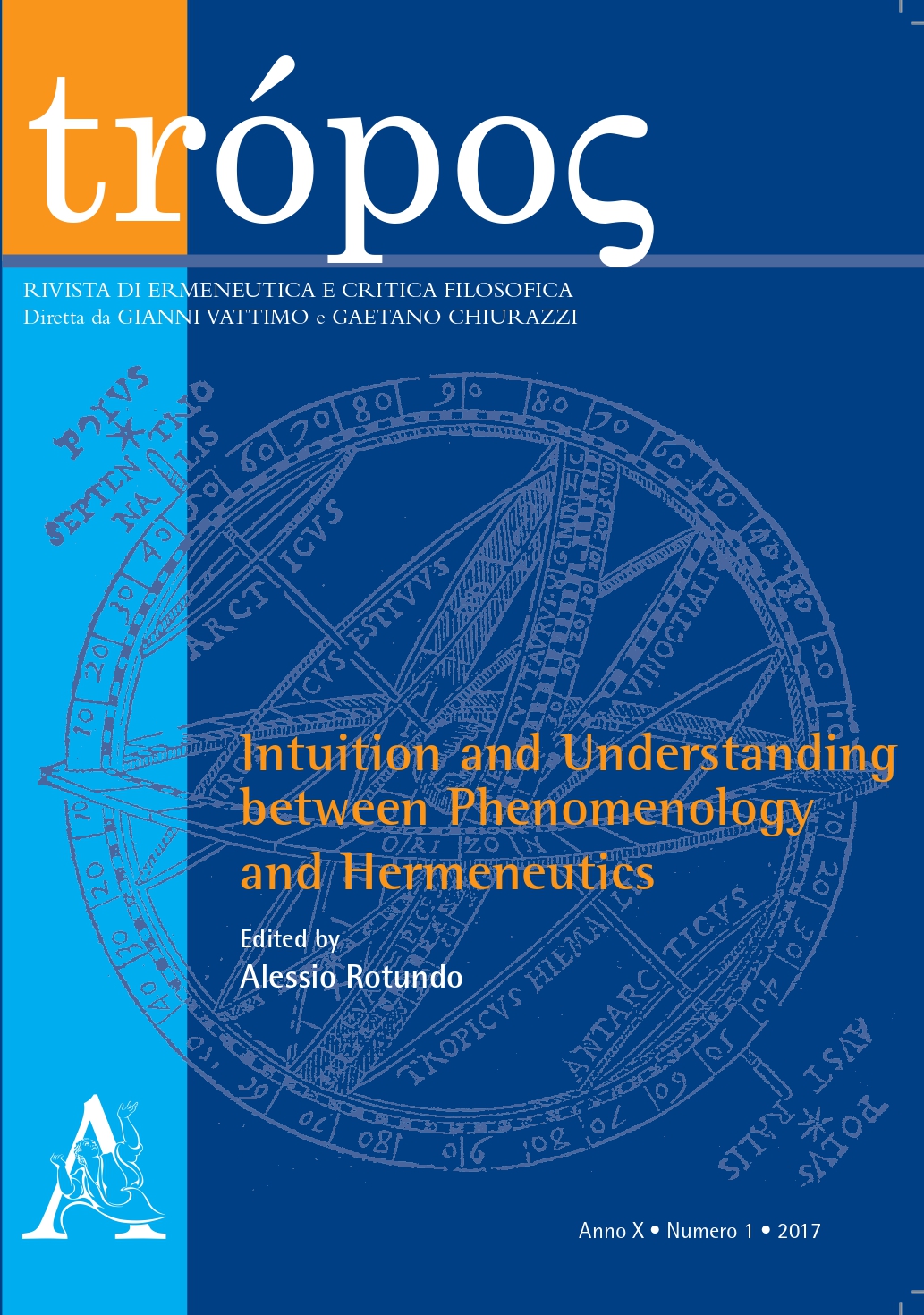The Cogito in Nature and History
Phenomenological and Hermeneutical Aspects
Parole chiave:
phenomenological tradition, hermeneutic philosophy, life–philosophy, cogito, operative intuitionAbstract
The paper sets out to offer a brief overview on the elaboration of phenomenological understanding in its original form within Husserl’s program and in later developments (Heidegger, Gadamer, Merleau–Ponty). It is argued that the still overarching idea of science leads Husserl’s self–understanding of the task of phenomenology. Heidegger’s far–reaching criticism of this stance as well as later critical approaches within the tradition of hermeneutical philosophy (Gadamer) are presented as working on the rehabilitation of the vital substructures that sustain any scientific endeavor, included that of Husserl’s phenomenology. Hermeneutical criticism and its thematization of an unreflected “life of spirit” (embodied by the notion of “understanding”) calls however for a necessary integration that pays heed to the aspect of the unreflected “natural life” operative in our experience of reality. I claim that this latter integration is achieved by Merleau–Ponty’s reformulation of the notion of cogito and of “intuition” in Phenomenology of Perception.



